
/ West Africa
Study trip to Burkina Faso, courtesy visits
The Nigerien delegation was received on December 22, 2022 by the Minister of Environment, Water and Sanitation, Dr. Augustin KABORE. The Secretary General of the Ministry, Dr. KOUANDA had received the delegation on December 19. Discussions focused on IWRM and the management of the climate change issue, among others.
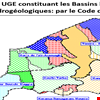
/ West Africa
Framework for the implementation of the IWRM approach in Niger
Niger is a Sahelian country, which faces several major challenges. These mutually reinforce each other to aggravate the already precarious socio-economic situation of the country. Thus, we note the persistence of the effects of climate change, the challenges related to the problems of regional insecurity in the Sahel, leading in particular to massive displacements of populations and disturbances in the implementation of sectoral policies.
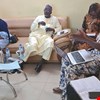
/ West Africa
The Nakanbe Water Agency, still young though the oldest
The first water agency in Burkina Faso was created on 22 March 2007 and covers an area of 60,337 km², i.e. 21% of Burkina Faso's surface area, with a population of around 8 million inhabitants, representing 44% of the country's population in 2015. It covers several large cities including the capital Ouagadougou and six (06) regional chief locations, which increases the already strong pressure on the basin's water resources.
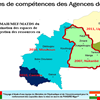
/ West Africa
Water agencies for better local management
Burkina Faso shares three river basins with other countries in the sub-region. These are the Niger River Basin, whose Basin Authority includes 9 States, the Volta River Basin, whose Basin Authority includes 6 States, and the Comoé River Basin, shared by 4 States.
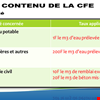
/ West Africa
More than nine (9) billion FCFA of financial contribution in water mobilized
Among the major advances in the implementation of IWRM and the national effort to finance the management and protection of water resources in Burkina Faso, we can cite the adoption and implementation of the Financial Contribution for Water (CFE). It is well known that one of the challenges in all developing countries is the mobilization of resources to finance the sustainable management of water resources. "This is why Burkina Faso has adopted the principles of environmental taxation of the country, which is called the CFE," explains Mr. Firmin W. OUEDRAOGO of SP / IWRM.
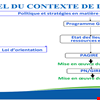
/ West Africa
IWRM implemented on a daily basis
The adoption and implementation of IWRM is part of a far-reaching reform of the country's water management.
The implementation of IWRM has allowed the capitalisation of important achievements that Mrs. Nadine NARE/OUERECE presented.
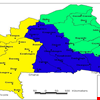
/ West Africa
IWRM in Burkina Faso, from the Plan to the Programme: boldness of small steps well monitored
Burkina Faso, a Sahelian country with essentially rain-fed water resources, is experiencing a depletion of its water resources at a time when the demand for water for households and development needs is increasing. This has a negative impact on the quality of available resources, particularly due to pollution of various origins.
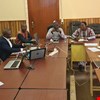
/ West Africa
High level study tour of the Ministry of Hydraulics and Sanitation of Niger to Burkina Faso to learn from its IWRM experiences
A delegation from the Ministry of Water and Sanitation (MH/A) of Niger went on a study tour to Burkina Faso from 19 to 23 December 2022. The delegation led by the Secretary General of the MH/A, Mr. Maman Moussa included the Director of Legislation of the MH/A, Mrs. Ibrahima Naleyni Nana Mariama and the Permanent Secretary of the National Action Plan for Integrated Water Resources Management (PANGIRE) of Niger, Dr. Sandao Issoufou.